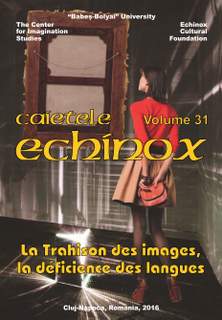La Rose d’Otto Tolnai ou des âmes mortes de quelques escargots abandonnés en temps de guerre
Otto Tolnai’s Rose : The Dead Souls of Forsaken Snails in Wartime
Author(s): Cécile KovacshazySubject(s): Studies of Literature
Published by: Universitatea Babeş-Bolyai
Keywords: Otto Tolnai; Epic Poem; Yugoslav Wars; Rhizome; Intertextuality; Idiot.
Summary/Abstract: What can literature do to act in front of war? What can it tell and show, and what can it convey? The Rose of Kichinev (2010), an epic poem written in free verse by the Hungarian-speaking writer Otto Tolnai offers an answer in post-war time in Yugoslavia. In the face of the unity and purity imposed by the nationalist bellicose vision, the hero of this epic poem, a “simple-minded boy”, invested with many diffracting features, advocates the reconstruction of the world according to the rhizome and fugue systems. The strong intertextuality derives from this incessant constructive decentering process. Instead of trying to erect an ideal, the poet seeks the fragmentary and the indeterminacy of reality in a reviving world in which words will fail to speak fully and images will tend to betray, and this is fine, after all.
Journal: Caietele Echinox
- Issue Year: 2016
- Issue No: 31
- Page Range: 151-158
- Page Count: 8
- Language: French
- Content File-PDF

